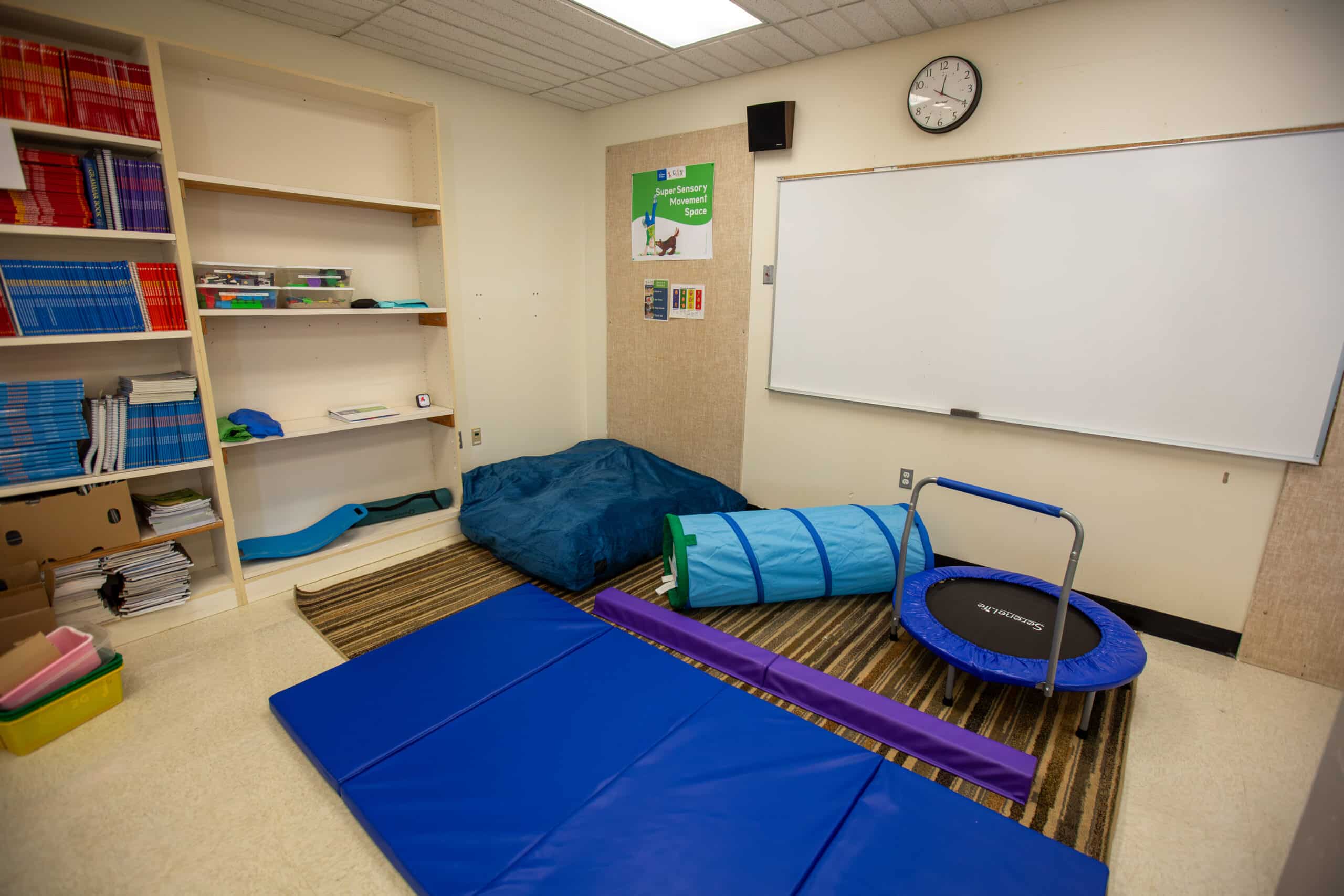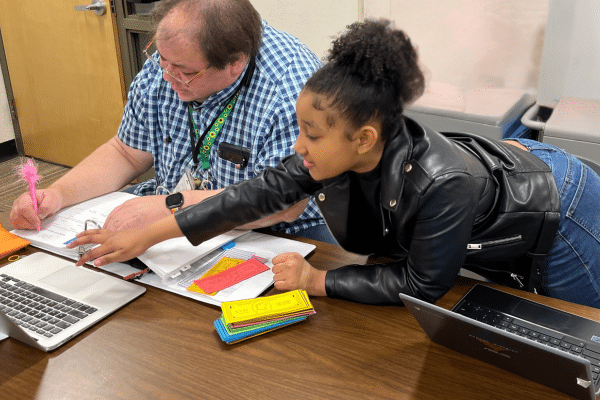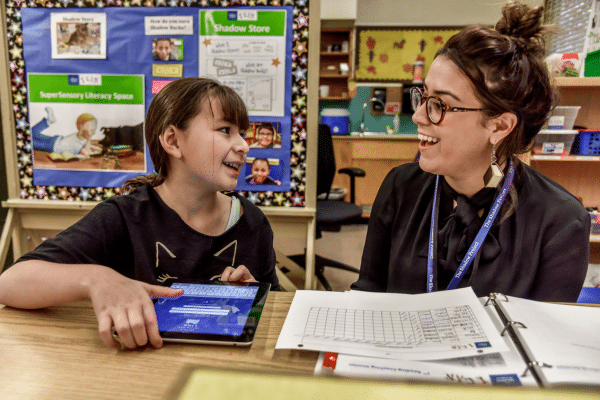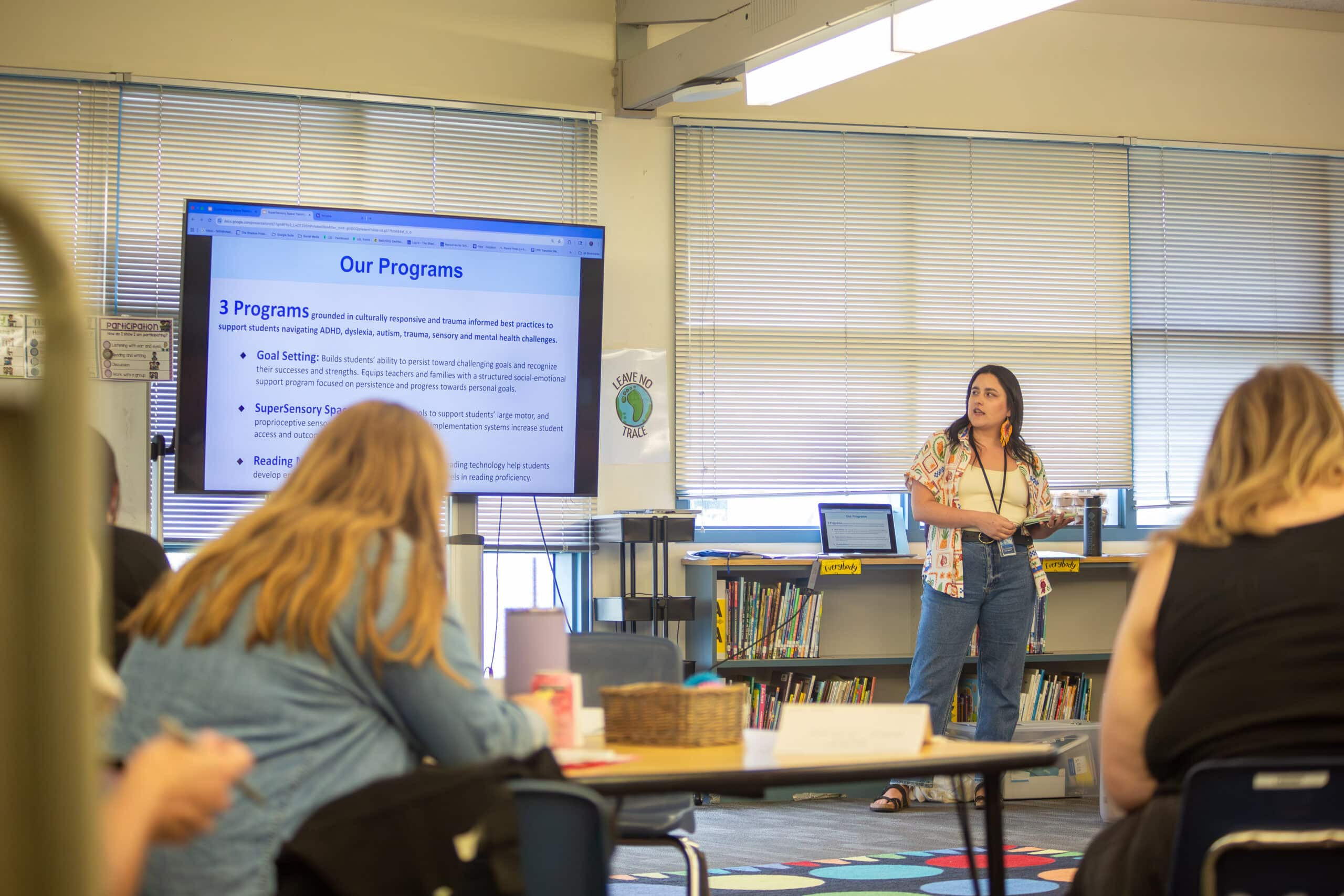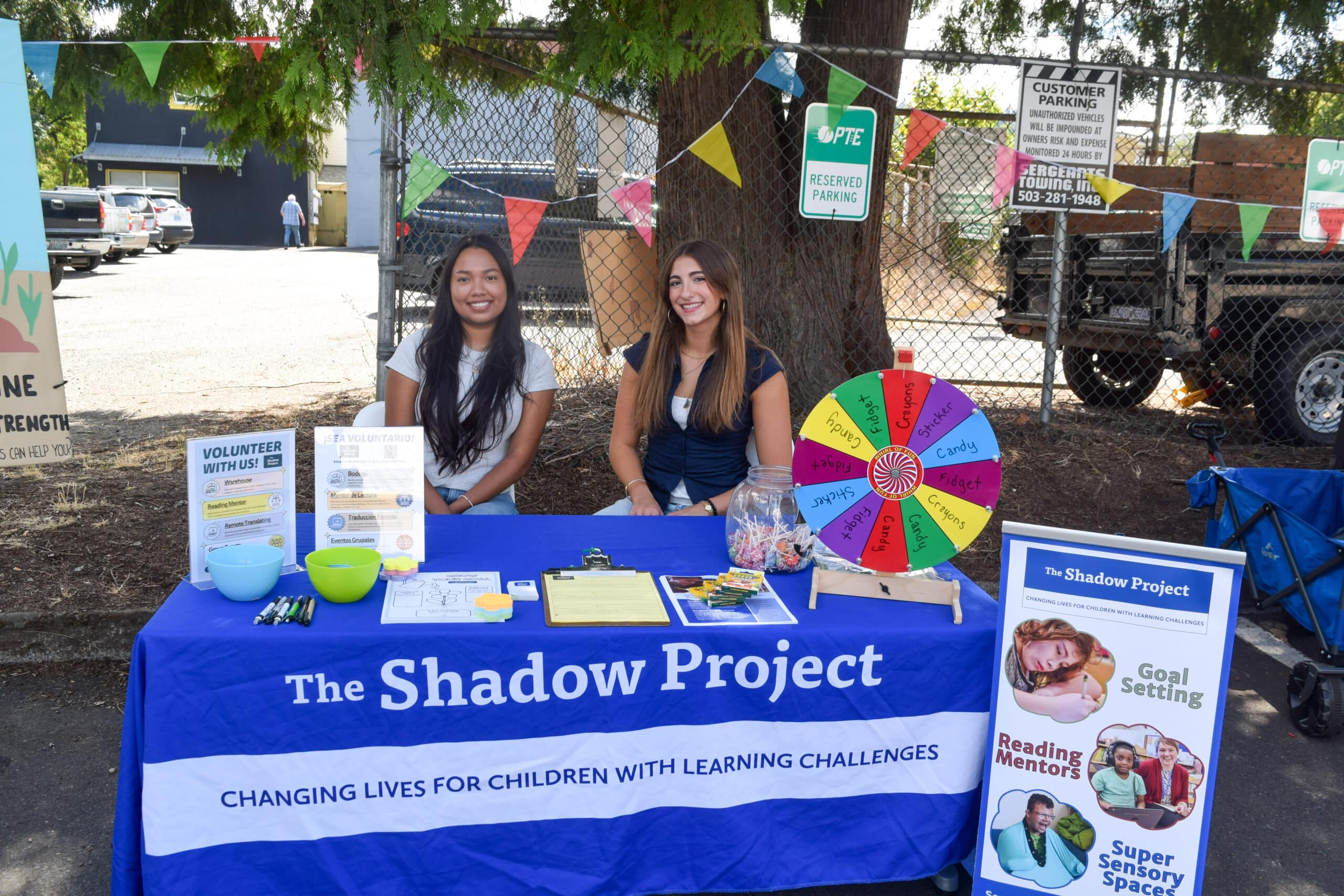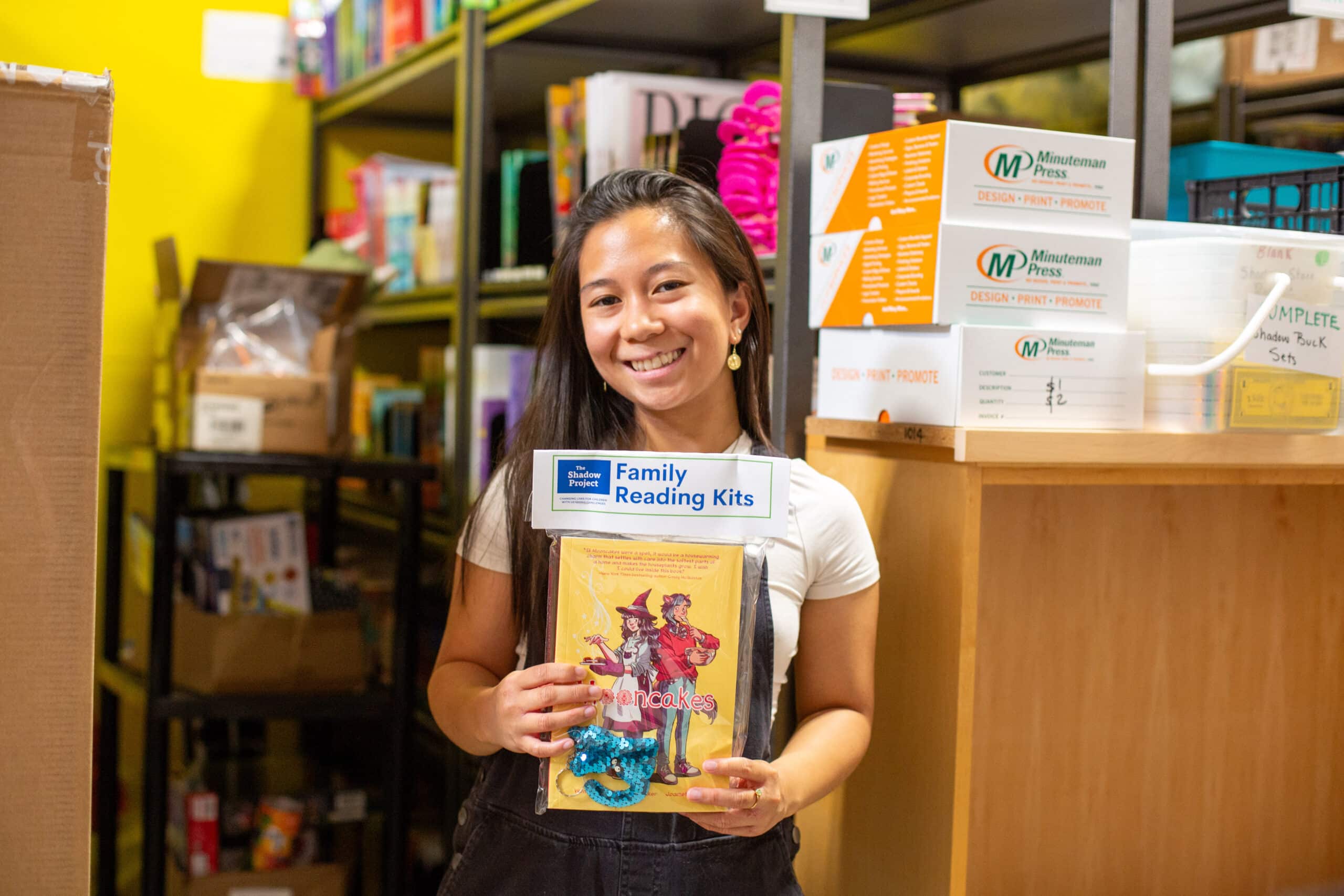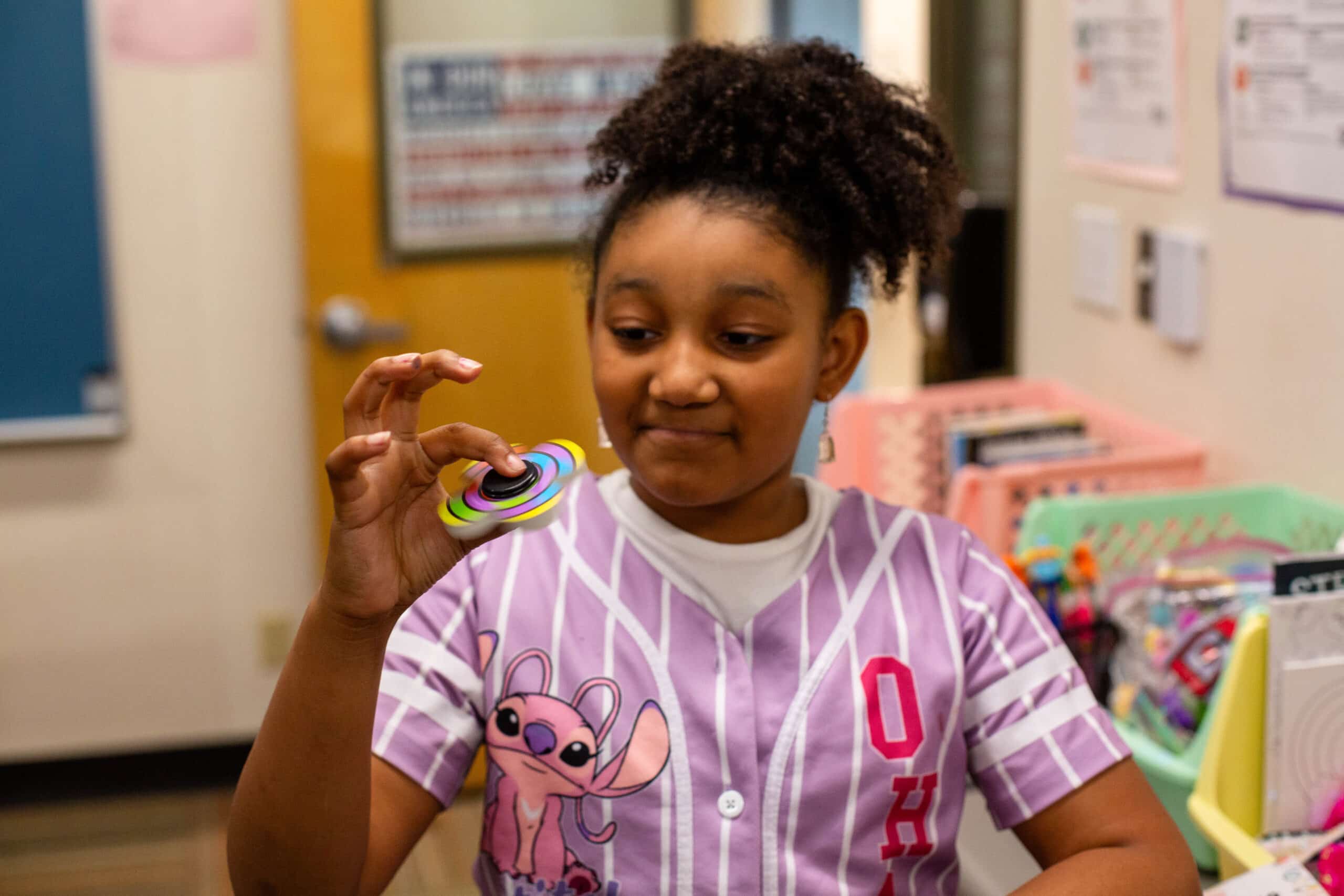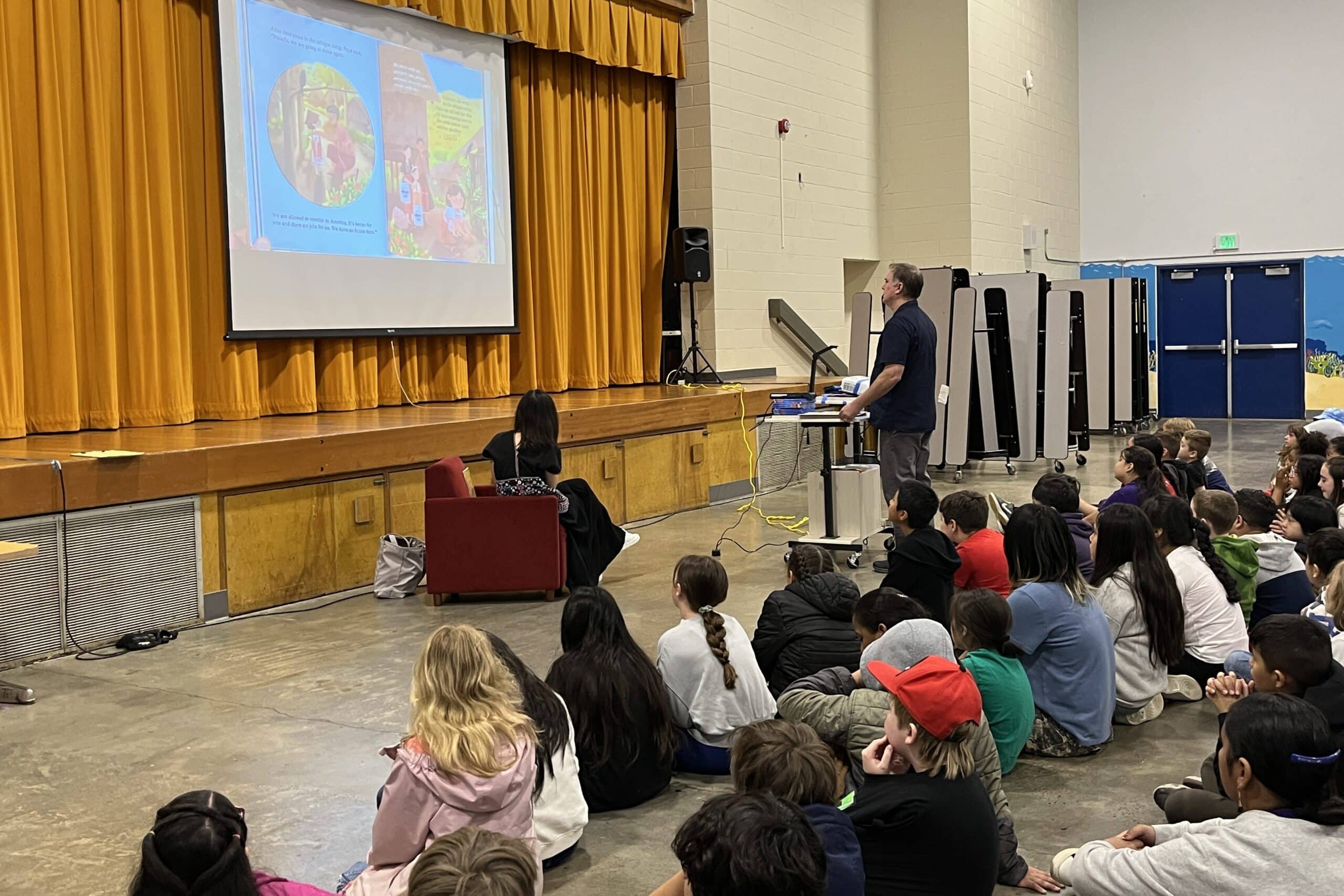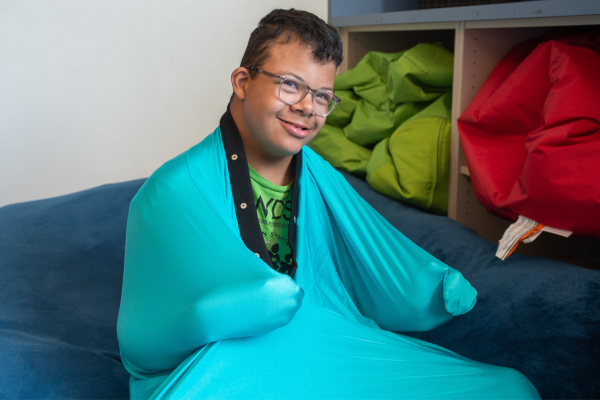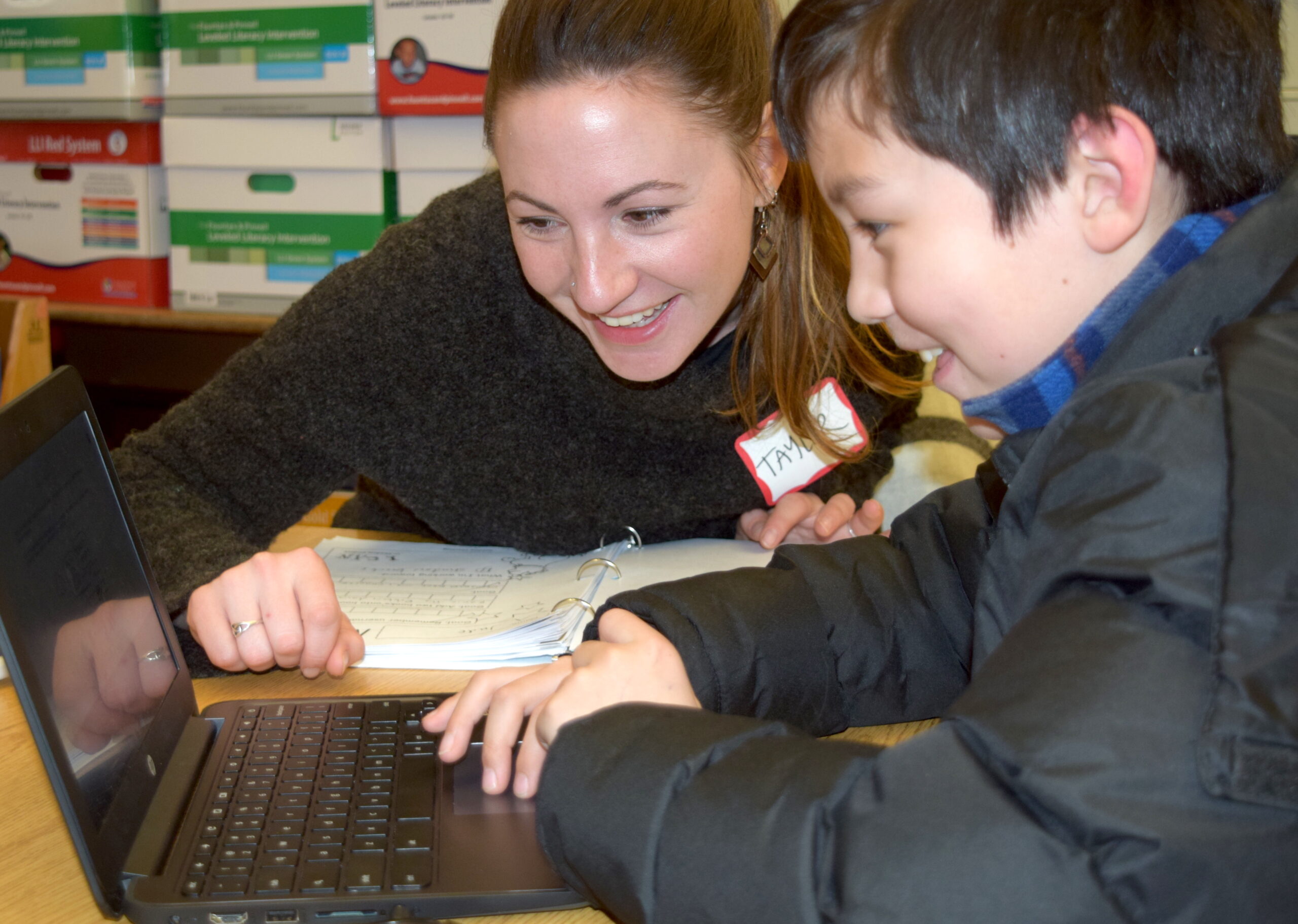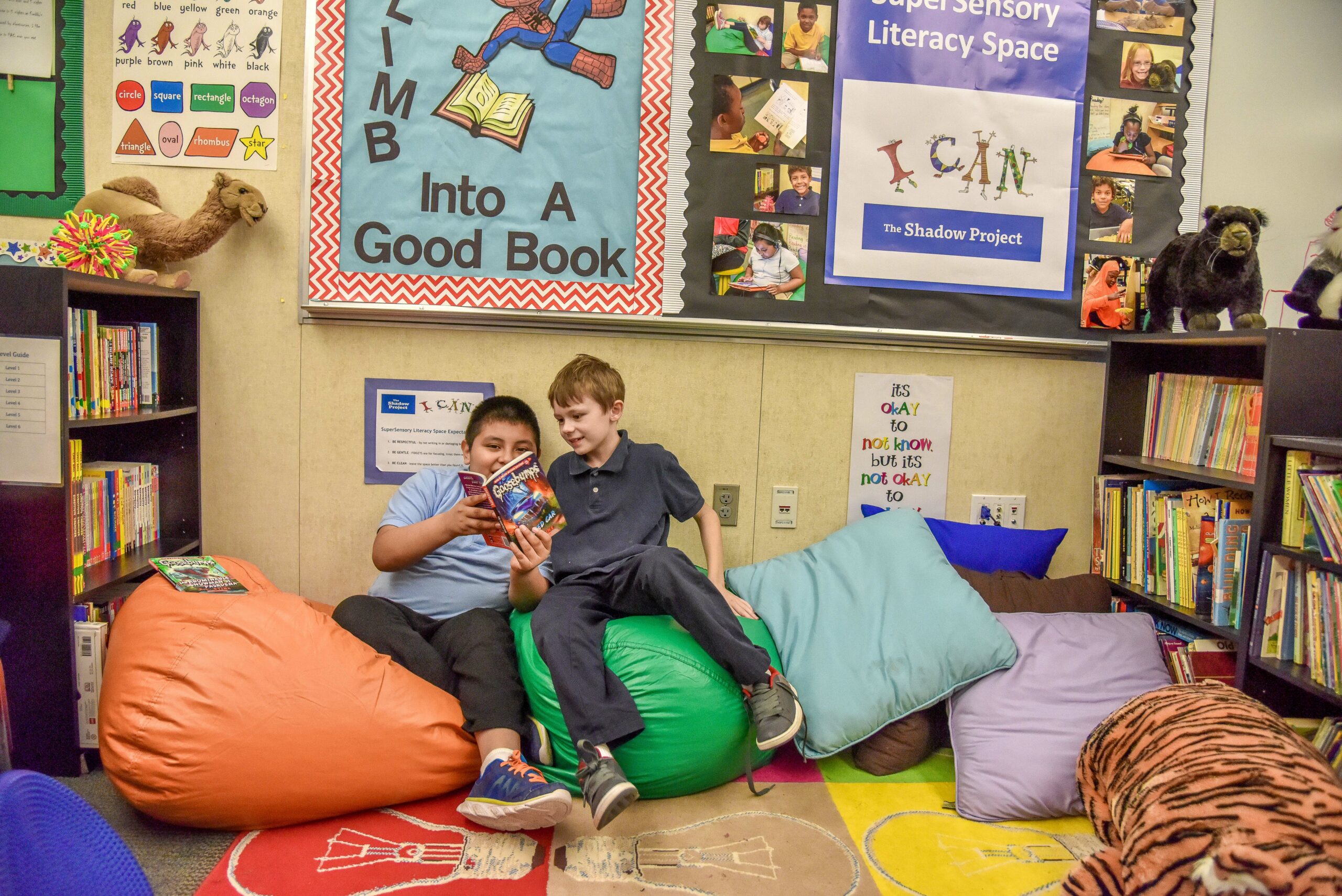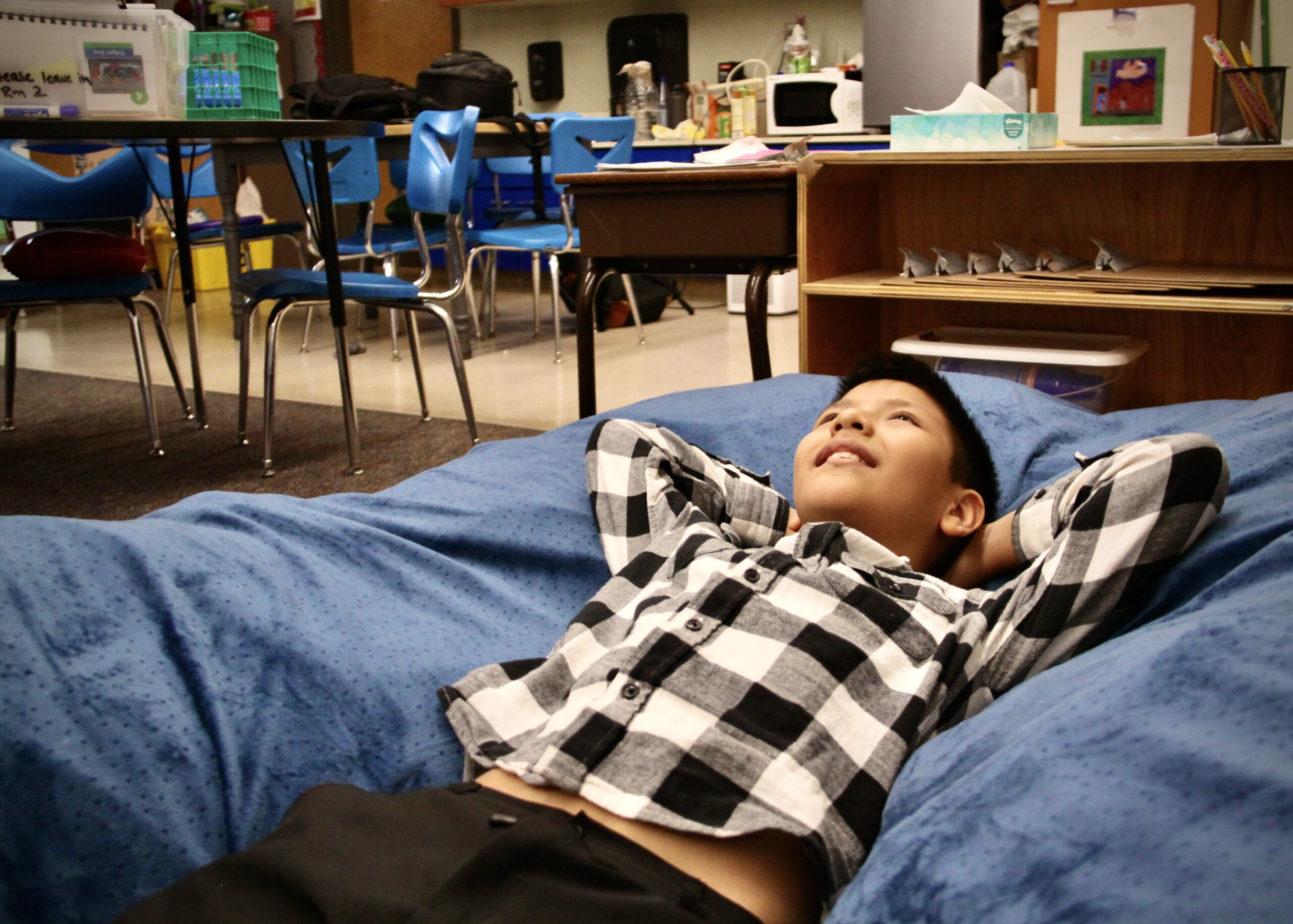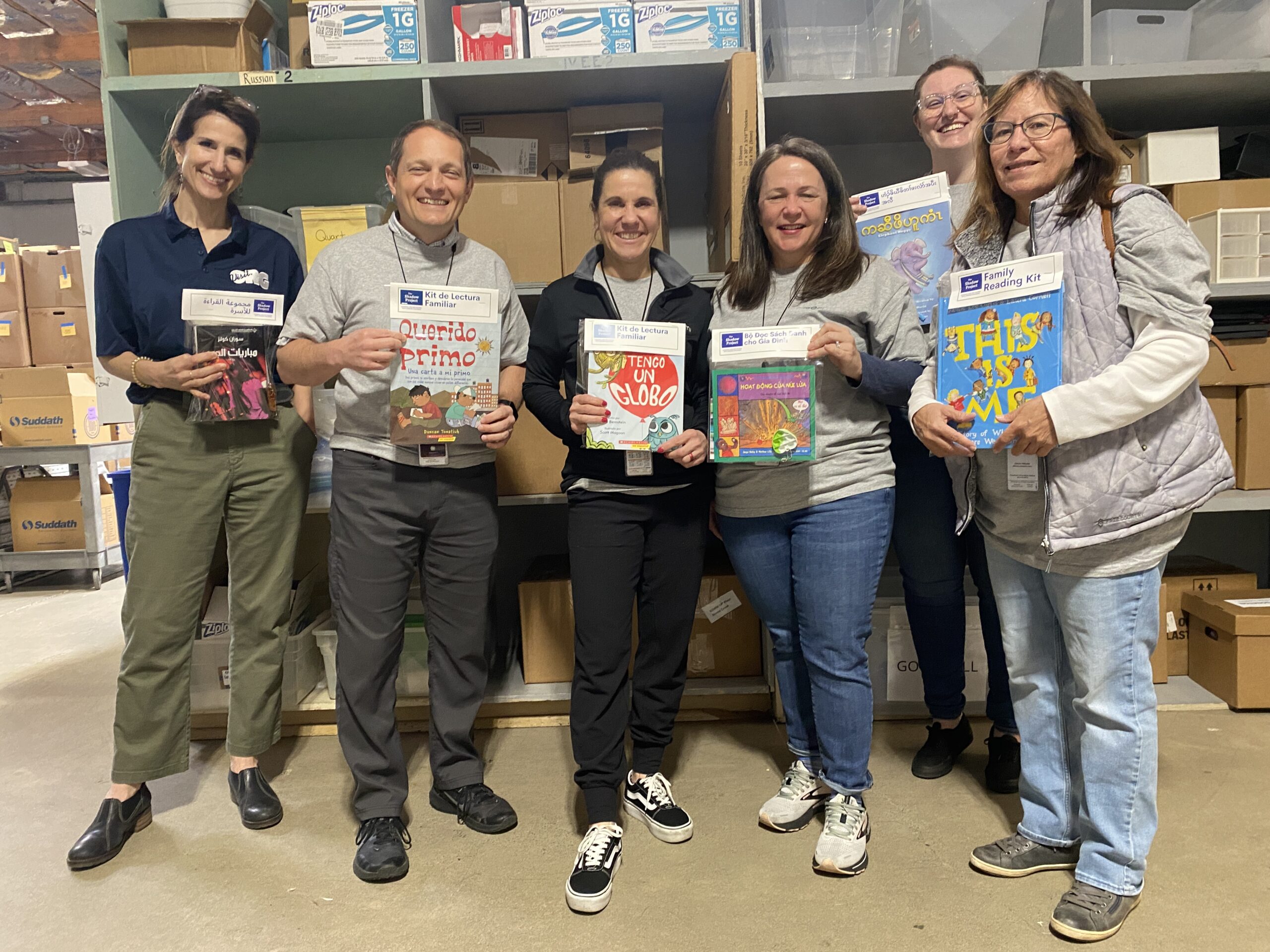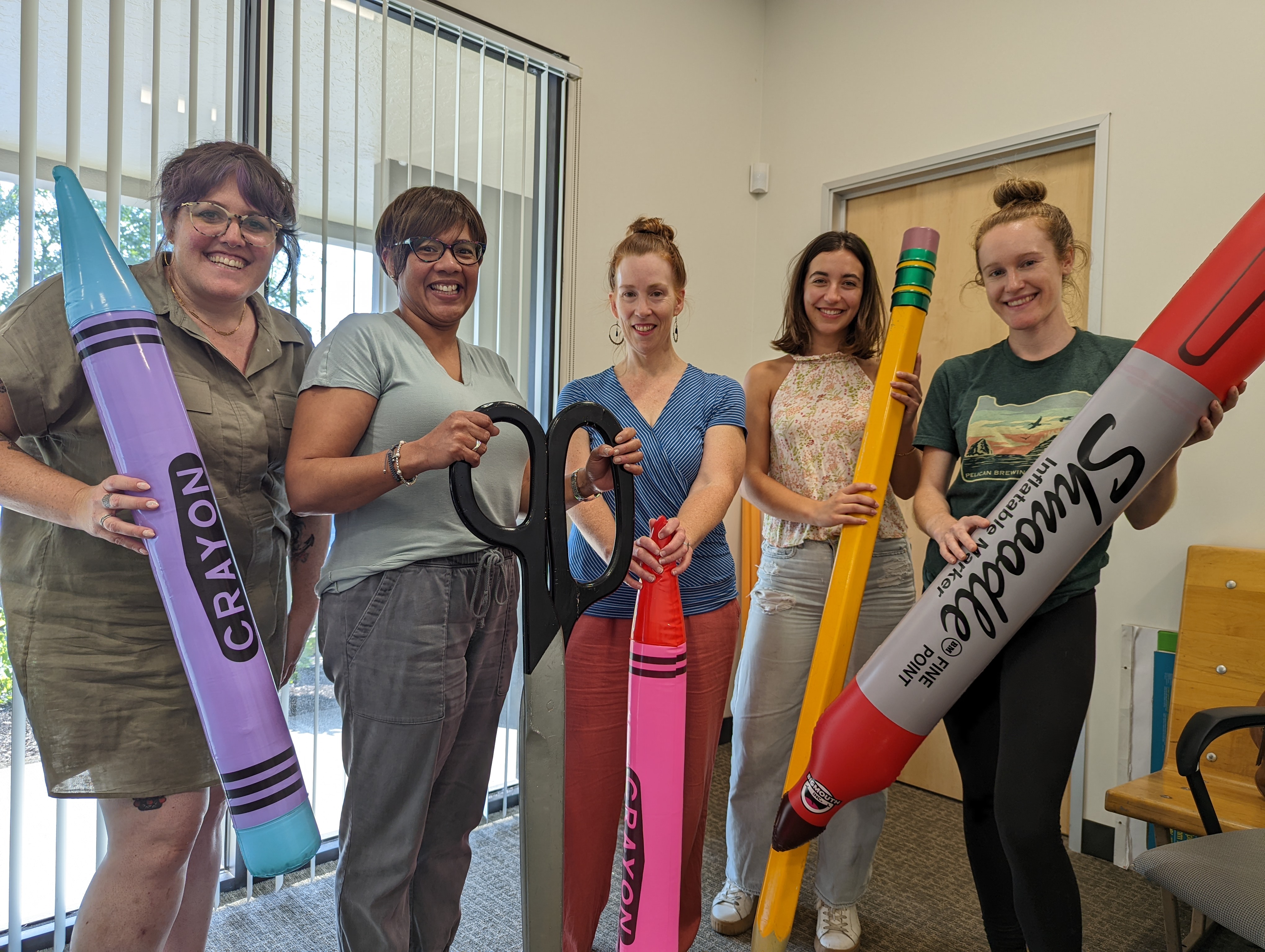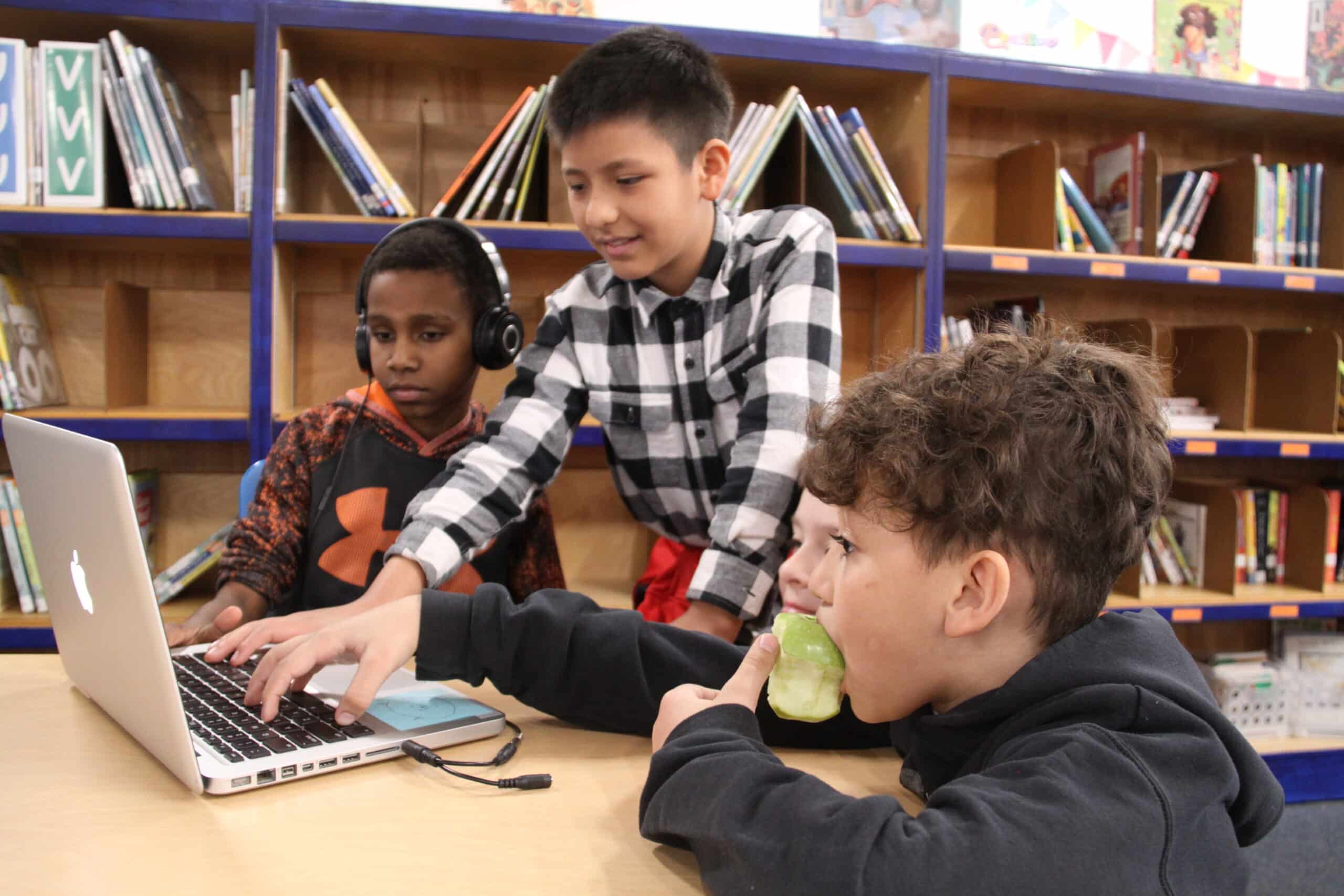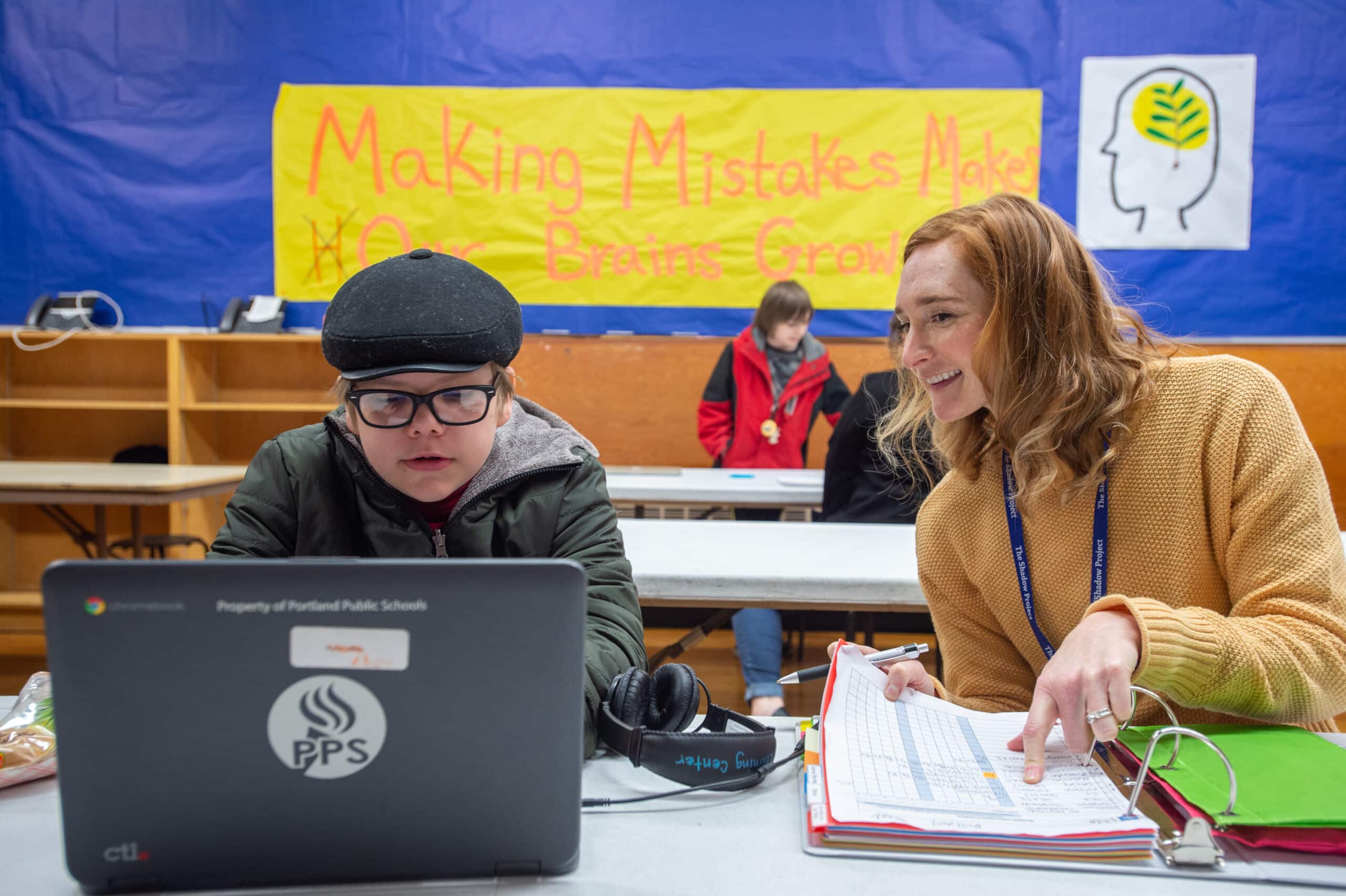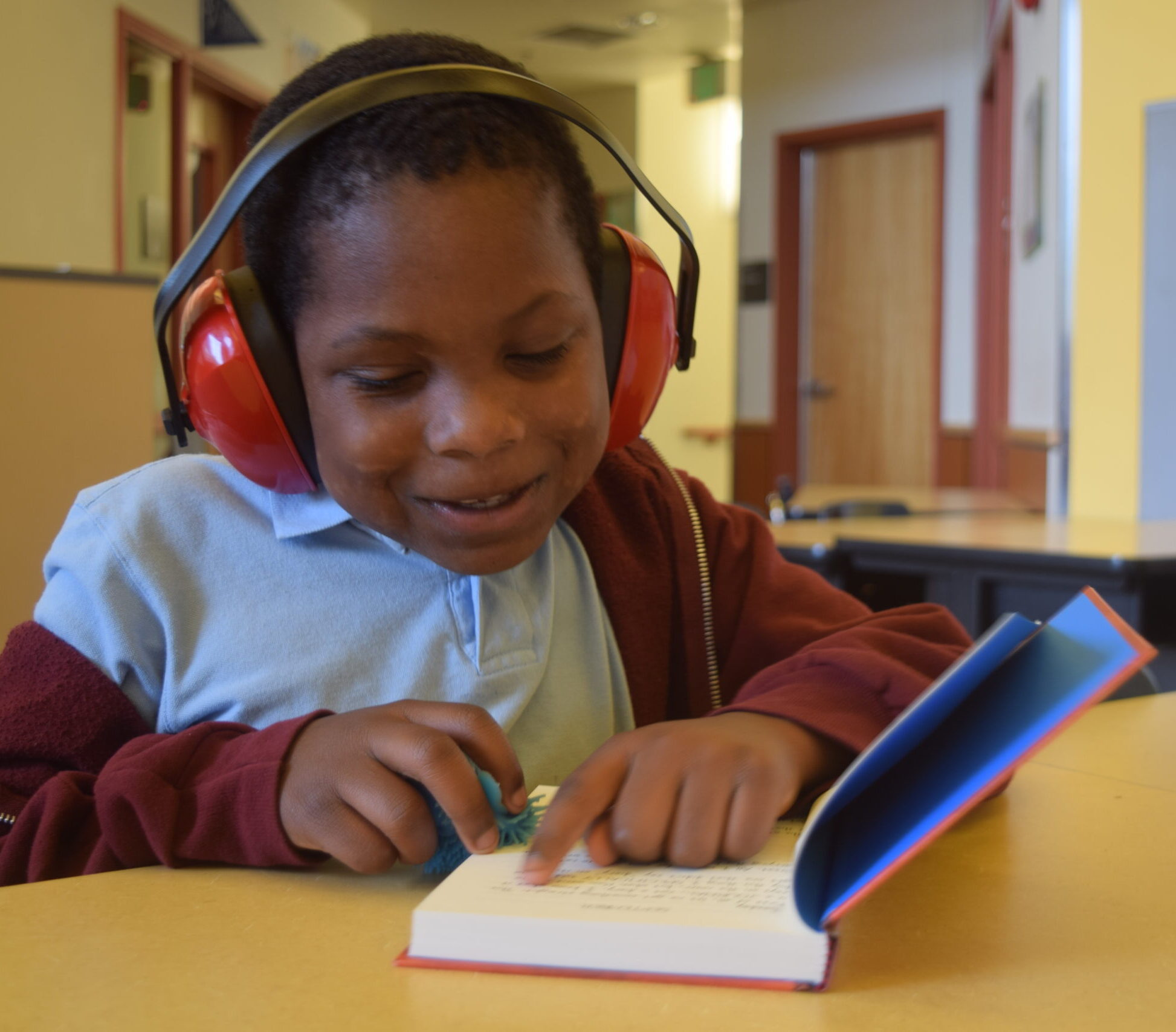The Shadow Project Strategic Plan 2025-29
The Shadow Project envisions an education system where learning differences are understood, respected, and celebrated. We’re leading the effort to help schools transform and make neuroinclusive education the standard – so every student, regardless of how they learn, has the support they need to thrive.
Our schools and our communities are hungry for this change. Neurodiversity is everywhere. Our schools must evolve to support these capable kids, and we are ready to do the work to make it happen. The Shadow Project is poised to ignite that energy and power a transformation across our state.
Click through our Priorities & Strategic Goals below. Each tab will continue to be updated throughout the life of our Strategic Plan as we make progress toward our vision.
Help More Students Build Confidence and Motivation to Learn and Achieve
We will increase by 20% the number of students served by our Goal Setting Program, within existing partner districts.
STRATEGIES
- Partner with at least two educators at each school to increase student access and deepen school-wide impact.
- Adapt program to support students with learning challenges outside of special education, and enroll new educators such as reading specialists, attendance coaches, and mental health specialists.
- Expand summer programming with community partners, like literacy and disability service nonprofits, so kids can continue building skills year-round.
Grow 1,000+ Enthusiastic Readers
We will help 1,000+ students become enthusiastic regular readers by increasing access to specialized reading technology, training teachers to integrate literacy technology in the classrooms, and providing mentors to support both.
STRATEGIES
- Increase teacher awareness and use of inclusive reading tools, training 250 teachers by 2029.
- Formalize teacher training and engagement model to ensure broad and equitable student access to Learning Ally and other inclusive literacy tools within partner schools.
- Grow staff and volunteer capacity to mentor students, and normalize use of reading technology in the classrooms.
- Build partnerships with local and regional literacy organizations to raise awareness and usage of inclusive reading tools.
Make Sensory-Friendly Spaces Standard in Schools
We will work to make proactive, sensory-supportive spaces a regular part of every school – so students’ behavior needs are met with support and skill-building, not isolation or punishment.
STRATEGIES
- Train 800 school staff on the benefits and effective use of SuperSensory Spaces.
- Improve program materials and teacher training to make the program easy for schools to sustain year-to-year.
- Offer consulting and support to help schools use existing sensory equipment more intentionally and effectively.
- Share our unique model broadly through conferences, community events, and media.
Expand Our Reach Beyond Portland
We will lay the groundwork to bring our Goal Setting program to students in communities outside the Portland area.
STRATEGIES
- Define what makes a new community ready and right for our work.
- Identify best practices for expansion as informed by our pilot with the Boys and Girls Club of Bend – a test location to help us evaluate our capacity for program delivery outside the Portland metro area.
Strengthen and Grow What Works
We will evolve our evaluation methods to continuously improve our programs, ensure that they meet the needs of our communities, are poised for sustainable growth, and make a lasting impact.
STRATEGIES
- Learn if – and how – results from the SuperSensory Spaces and Reading Mentors programs differ for students based on race, gender, income, or community services.
- Identify which parts of each Shadow Project program are most important for achieving strong results.
- Launch new methods to share impact with schools and families, and get community input on program design and delivery.
Strengthen Our Brand and Message to Reach More People
We will ensure our branding and messaging clearly reflect who we are, what we do, and why it matters, so we can deepen our understanding of our mission, grow awareness, and inspire lasting support.
STRATEGIES
- Conduct research to understand how our brand is perceived by different audiences.
- Create messaging that inspires action and reflects the voices of our community.
- Use what we learn to launch a communications strategy that grows our visibility and impact.
Partner with Supporters to Sustain and Grow Our Mission
We will create a more reliable and diverse funding base to ensure every child with learning differences has the chance to succeed – now and in the future.
STRATEGIES
- Grow individual giving by building lasting relationships with supporters, including those who make major charitable investments.
- Increase multiyear commitments from foundations and major donors.
- Launch new donor programs, including planned giving and legacy opportunities.
- Seek public funding and government partnerships to scale our work.
Build a Stronger, More Inclusive Team
We will grow and support a diverse, inclusive team that reflects our students and communities – because a healthy, mission-driven staff is key to student success.
STRATEGIES
- Advance accessibility and inclusivity of our office spaces and public events.
- Ensure our compensation and staffing plans promote equity, support employee wellness, and help retain highly capable staff.
- Strengthen operations and technology systems to support long-term growth.
Strengthen Our Board to Lead Boldly
A well-supported and engaged board will help us grow our impact, raise critical funds, and tell our story more powerfully.
STRATEGIES
- Recruit a diverse board with expertise in education, fundraising, and nonprofit governance.
- Train and support board members to be effective advocates and ambassadors.
- Create leadership pipelines and succession plans.
- Launch new board committees to guide strategy and communications.
- Improve systems for board-staff collaboration and timely decision-making.
- Goal 1
-
Help More Students Build Confidence and Motivation to Learn and Achieve
We will increase by 20% the number of students served by our Goal Setting Program, within existing partner districts.
STRATEGIES
- Partner with at least two educators at each school to increase student access and deepen school-wide impact.
- Adapt program to support students with learning challenges outside of special education, and enroll new educators such as reading specialists, attendance coaches, and mental health specialists.
- Expand summer programming with community partners, like literacy and disability service nonprofits, so kids can continue building skills year-round.
- Goal 2
-
Grow 1,000+ Enthusiastic Readers
We will help 1,000+ students become enthusiastic regular readers by increasing access to specialized reading technology, training teachers to integrate literacy technology in the classrooms, and providing mentors to support both.
STRATEGIES
- Increase teacher awareness and use of inclusive reading tools, training 250 teachers by 2029.
- Formalize teacher training and engagement model to ensure broad and equitable student access to Learning Ally and other inclusive literacy tools within partner schools.
- Grow staff and volunteer capacity to mentor students, and normalize use of reading technology in the classrooms.
- Build partnerships with local and regional literacy organizations to raise awareness and usage of inclusive reading tools.
- Goal 3
-
Make Sensory-Friendly Spaces Standard in Schools
We will work to make proactive, sensory-supportive spaces a regular part of every school – so students’ behavior needs are met with support and skill-building, not isolation or punishment.
STRATEGIES
- Train 800 school staff on the benefits and effective use of SuperSensory Spaces.
- Improve program materials and teacher training to make the program easy for schools to sustain year-to-year.
- Offer consulting and support to help schools use existing sensory equipment more intentionally and effectively.
- Share our unique model broadly through conferences, community events, and media.
- Goal 4
-
Expand Our Reach Beyond Portland
We will lay the groundwork to bring our Goal Setting program to students in communities outside the Portland area.
STRATEGIES
- Define what makes a new community ready and right for our work.
- Identify best practices for expansion as informed by our pilot with the Boys and Girls Club of Bend – a test location to help us evaluate our capacity for program delivery outside the Portland metro area.
- Goal 5
-
Strengthen and Grow What Works
We will evolve our evaluation methods to continuously improve our programs, ensure that they meet the needs of our communities, are poised for sustainable growth, and make a lasting impact.
STRATEGIES
- Learn if – and how – results from the SuperSensory Spaces and Reading Mentors programs differ for students based on race, gender, income, or community services.
- Identify which parts of each Shadow Project program are most important for achieving strong results.
- Launch new methods to share impact with schools and families, and get community input on program design and delivery.
- Goal 6
-
Strengthen Our Brand and Message to Reach More People
We will ensure our branding and messaging clearly reflect who we are, what we do, and why it matters, so we can deepen our understanding of our mission, grow awareness, and inspire lasting support.
STRATEGIES
- Conduct research to understand how our brand is perceived by different audiences.
- Create messaging that inspires action and reflects the voices of our community.
- Use what we learn to launch a communications strategy that grows our visibility and impact.
- Goal 7
-
Partner with Supporters to Sustain and Grow Our Mission
We will create a more reliable and diverse funding base to ensure every child with learning differences has the chance to succeed – now and in the future.
STRATEGIES
- Grow individual giving by building lasting relationships with supporters, including those who make major charitable investments.
- Increase multiyear commitments from foundations and major donors.
- Launch new donor programs, including planned giving and legacy opportunities.
- Seek public funding and government partnerships to scale our work.
- Goal 8
-
Build a Stronger, More Inclusive Team
We will grow and support a diverse, inclusive team that reflects our students and communities – because a healthy, mission-driven staff is key to student success.
STRATEGIES
- Advance accessibility and inclusivity of our office spaces and public events.
- Ensure our compensation and staffing plans promote equity, support employee wellness, and help retain highly capable staff.
- Strengthen operations and technology systems to support long-term growth.
- Goal 9
-
Strengthen Our Board to Lead Boldly
A well-supported and engaged board will help us grow our impact, raise critical funds, and tell our story more powerfully.
STRATEGIES
- Recruit a diverse board with expertise in education, fundraising, and nonprofit governance.
- Train and support board members to be effective advocates and ambassadors.
- Create leadership pipelines and succession plans.
- Launch new board committees to guide strategy and communications.
- Improve systems for board-staff collaboration and timely decision-making.
Join us to create an inclusive future for Oregon’s kids.
The Shadow Project is leading a statewide movement to transform education for students with learning differences. But we can’t do it alone. Here’s how you can help:
Partner with Us
Bring our programs to your school or district.
Advocate
Share our work and push for inclusive policy change.
Donate
Invest in programs that make a lasting difference.

